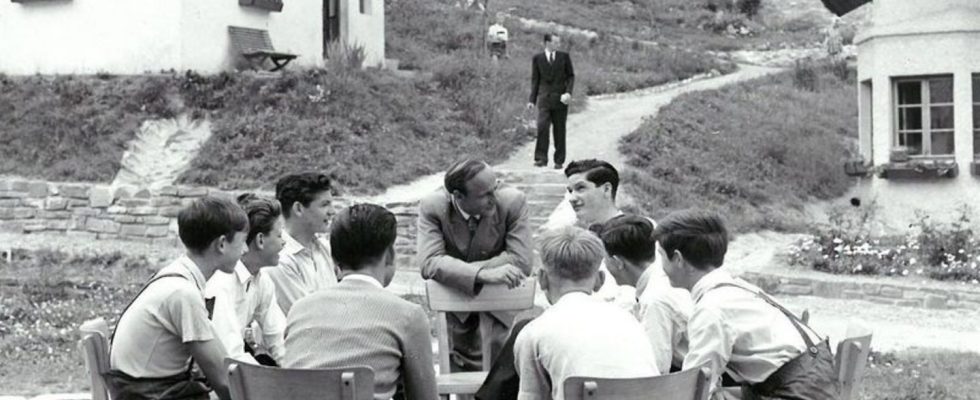Conflicts
SOS Children’s Villages turns 75: wars put a strain on children
1953: Children’s Village founder Hermann Gmeiner talks to children in the first SOS Children’s Village. photo
© Handout/SOS Children’s Villages/dpa
The organization was founded after World War II. Today, children still suffer in conflicts in the same way, says the movement’s leader. But trends in countries like Germany are also worrying.
Against the background of current conflicts, the head of the global… SOS Children’s Villages Movement, Angela Rosales, seeing wars from the perspective of children. “Perhaps this is necessary to create a more peaceful world,” said the acting board member of SOS Children’s Villages International to the German Press Agency in Vienna.
Childhood war experiences “can have a major impact for decades,” said the head of the organization, whose foundation stone was laid 75 years ago today. On April 25, 1949, the Austrian medical student Hermann Gmeiner founded the association “Societas Socialis” (SOS) with a few fellow activists. In the same year, construction began on the first children’s village in Tyrol, where abandoned and orphaned children after the World War could grow up in substitute families instead of in homes.
Today SOS Children’s Villages operates in more than 130 countries. In contrast to its founding years, the focus of the organization today is much more on social work and humanitarian aid to enable children and parents to stay together in crisis situations. For example, a children’s village in Rafah in the southern Gaza Strip has become an aid center for hundreds of people in and around this facility, said Rosales.
“The biggest victims of any conflict are the children”
From Rosales’ perspective, some things have not changed since World War II. “The biggest victims of any conflict are the children,” she said, referring to the loss of family members, long-term psychological consequences, malnutrition and educational gaps. “They bear no responsibility, but they pay the highest price,” said Rosales. Since 1945, however, awareness of children in war situations has grown and aid organizations have developed tailor-made offers, she emphasized.
Away from trouble spots such as Ukraine, the Gaza Strip, Sudan, the Congo and Haiti, SOS Children’s Villages is also observing growing problems in more stable regions. In richer countries, there is a trend toward more drug and alcohol abuse by parents, Rosales said. Children are therefore exposed to high risks and separation from their fathers and mothers. In addition, there is a lack of social and psychological support for families in countries like Germany and Austria.

